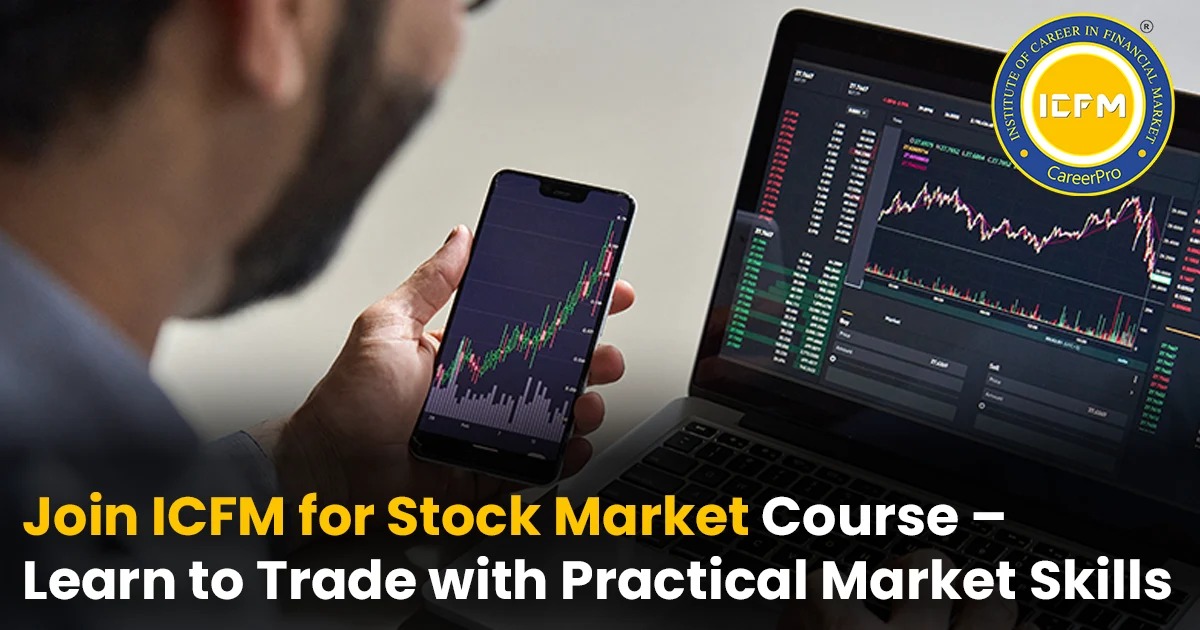With technology continuously evolving, gaining insights into the workings of the stock market is becoming increasingly useful. Stock market course are beneficial for new investors as well as working professionals wanting to polish their trading techniques.
The stock market does not exclusively belong to traditional investors or to finance gurus. Anyone can learn how to control their finances better and even amass some wealth with the right stock knowledge. Structured education is one of the most effective tools to instill the discipline required to escape the world of speculation and assumptions. This article will provide the details of the stock market course, its contents, and its impact on how learners interact with financial markets.
The Need to Take a Stock Market Course
A stock market course equips learners with the theoretical groundwork for effective investing, trading, and corporate finance decision-making. These courses enable individuals to grasp the workings of the market, including chart and report analysis, as well as risk and return evaluation. Without the proper knowledge framework, market participation is largely emotional and speculative. A good course enables learners to cultivate self-discipline, make data-driven decisions, and implement strategic approaches commensurate with their financial aspirations.
Students learn about significant market developments and accompanying technical indicators for entry and exit trade decisions. Long-term investment strategies are also taught with short-term speculative trading to allow learners to select the approach that best aligns with their investment objectives.
Outline of a Stock Market Course
Like any other course, most stock market course are offered with the hope of capturing a broad spectrum of users with varying knowledge and experience. Most program structures assume a beginner, intermediate, and advanced level sequence to ensure students systematically build up concepts.
The stock market is taught in the beginner course by explaining shares, stock exchanges, demat accounts, and various forms of trading. The course also explains regulatory bodies like SEBI and how they govern the financial ecosystem.
In the intermediate course, students learn about chart patterns, indicators, and the underlying psychology of market movements and gain insights into technical analysis. The course also covers company fundamentals and the importance of financial reports in assessing a company's stock.
The advanced-level course covers investing in derivatives like options and futures, trading strategies including scalping, swing trading, and portfolio management. It also includes real-life, hands-on scenarios in skill drills and market simulations.
Other elective courses include algorithmic trading, commodities, forex, and mutual fund analysis. These subjects illustrate the constantly evolving and interconnected nature of financial markets.
Key Aspects of A Quality Learning Strategy
A very distinctive feature of the stock market course is the focus on practical training on live markets. Learning stops being passive, and equipping students with the ability to observe and participate in real-time market activities fosters actual learning. The students are able to connect what they have learned in textbooks with real-world scenarios.
The availability of both online and offline flexible learning modes widens accessibility. Online stock market course are of immense benefit to professionals who work or to those who live outside the financial capitals. The sessions are usually conducted through live classes, recorded sessions, and direct contact with instructors to answer questions.
Practical case studies and simulation of trading activities improve the stock market course experience even further. Such elements prepare learners for actual trading or portfolio management in the real world by helping them understand the dynamics of stock movements and investor behavior.
Most learners are awarded a certificate detailing their understanding of specific market principles and techniques. This certificate is important for an individual applying for a career in finance, as well as a freelancer in trading and advising.
Who Can Benefit from a Stock Market Course?
The audience for the stock market course is quite broad. Even seasoned students of finance and business can get a head start by understanding how markets work before entering the job market. Professionals from other sectors may take an interest in the stock market to construct a secondary income stream or optimize their savings. Entrepreneurs and small business owners can use these principles to make informed decisions regarding their business investment management. Retirees and even homemakers who take a keen interest in personal finance also stand to benefit from learning about how to market safely and how to invest wisely.
For full-time traders or those contemplating trading as a profession, a formal course offers resources to reduce the influence of emotions on decision making and to increase reliance on data and trend analysis. Casual investors learn how to manage retirement funds or grow long-term savings without adopting guesswork through market trend following.
Obtained Skills and Knowledge
This stock market course provides fundamental education that builds learners' investing confidence. It teaches them how to analyze company performance, interpret economic indicators, and formulate a trading plan. It also examines risk management, which is fundamental to any financial strategy. With the provided resources, the learners can construct an adequate investment portfolio and strategically manage it per their financial requirements.
Theoretical concepts and practical lessons on trading, such as support and resistance levels, moving averages, and momentum indicators, are delivered in detail. It also covers the analysis of macroeconomic factors and the impact of international news and events on domestic markets. This equips students with the required skills to operate in dynamic market scenarios.
Final thoughts
It is indisputable that understanding the stock market is an asset in this current economy. Whether the intention is to become a diligent investor and diversify one’s own portfolio, or even build a finance career, stock market courses provide a well-defined sequence of learning steps to follow.
Averaging in the stock market course helps one understand the financial market on a deeper and more sophisticated level and allows them to take control of their finances.
The rise in the availability of financial markets and the emergence of online trading systems have enabled people from different backgrounds to participate in trading actively. However, as put, success in the markets comes from knowledge, discipline, continuous learning, and a well-crafted stock market program can teach these traits.
Frequently Asked Questions (FAQs)
What is the average length of a stock market course?
This course can last anywhere from one to three months d,epending on the level and pace selected by the learner.
Is there any need for prior financial expertise before taking these courses?
Of course not! Most stock market courses are beginner-friendly and do not demand previous knowledge of finance or trading.
Are participants awarded a certificate after finishing the course?
Certainly! In most cases, learners are entitled to receive a certificate after completing a course.
Can the courses be taken online?
Definitely! Many institutes provide both in-class and online options to reach a wider audience.
What type of specialized industry guidance is offered?
Some institutions offer career guidance for finance, trading, and investment positions, however work placements are based on eligibility and availability.









